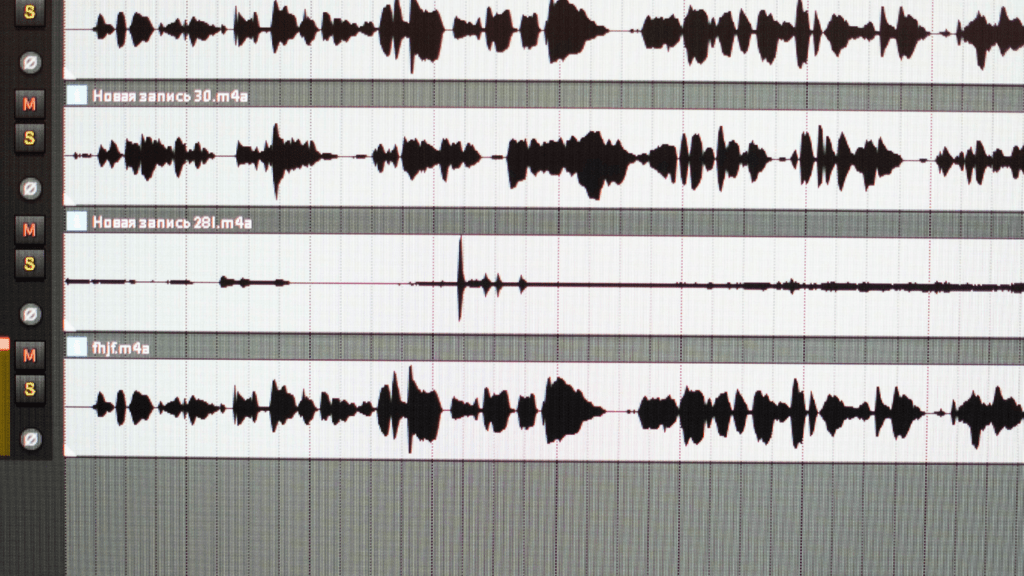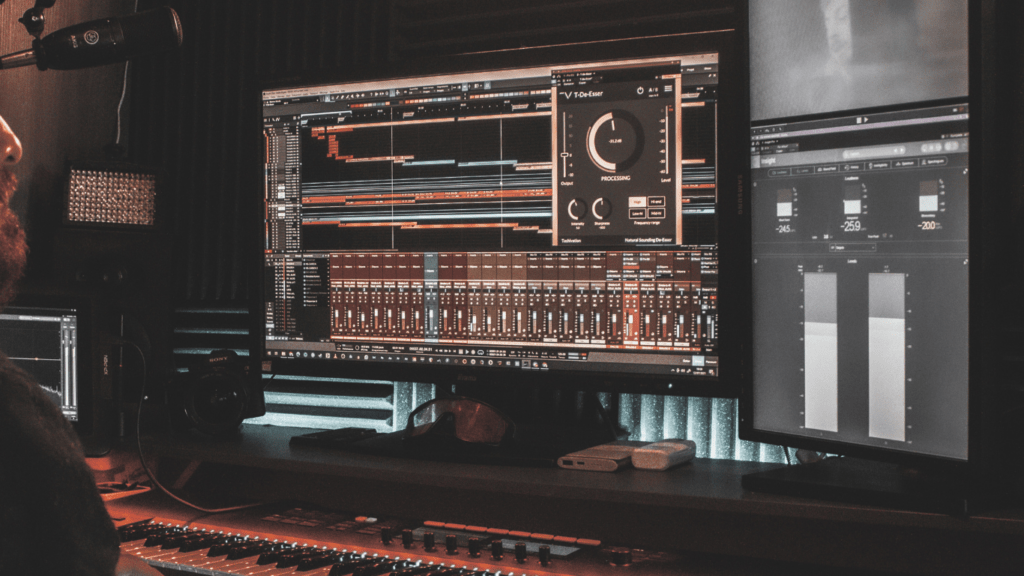The Importance of Sound in Game Atmosphere
Enhancing Emotional Engagement
Sound in games enhances emotional engagement by leveraging diverse audio elements.
Ambient sounds, like rustling leaves or distant thunder, immerse players in the environment.
High-quality voice acting brings characters to life, making the storyline more compelling.
Dynamic music adapts to in-game events, heightening tension during battles or providing relief in calm moments.
For instance, horror games use eerie soundscapes to evoke fear, while adventure games employ uplifting tunes to inspire a sense of exploration.
By using sound effectively, developers create deep emotional connections with players.
Setting the Game’s Tone
Music sets the game’s tone, establishing atmosphere and guiding player expectations.
Fast-paced, high-energy tracks suit action-packed sequences, while slower, melodic compositions fit narrative-driven segments.
Specific genres can be associated with distinct sound styles—sci-fi games might incorporate synthetic tones, while fantasy titles often use orchestral scores.
Sound effects also play a role; the clang of metal armor indicates medieval settings, while electronic beeps suggest futuristic themes.
Proper audio cues ensure players instantly understand the game’s mood and setting.
How Music Influences Player Behavior
1. Audio Cues and Gameplay Mechanics
Audio cues in video games provide players with crucial information.
They alert players to specific actions, impending dangers, or changes in the game state.
For instance, a distinct chime may signal the collection of a valuable item, while an ominous sound can warn of nearby enemies.
These cues streamline gameplay, enhance reaction times, and improve overall player performance. I
n The Legend of Zelda, the “secret” chime reassures players they’ve uncovered a hidden room, rewarding exploration and encouraging thoroughness.
2. Music Tempo and Player Performance
Music tempo significantly impacts player performance.
Fast-paced music often heightens arousal, improving speed and reaction times.
Conversely, slower tracks can encourage careful, deliberate decision-making like
- In racing games, upbeat soundtracks foster a sense of urgency and excitement, pushing players to drive faster.
- In puzzle games, slower, melodic tunes help maintain focus and reduce stress, aiding in problem-solving.
- In Tetris Effect, the tempo of the background music correlates with the game’s intensity, creating a seamless, engaging experience.
Sound Design Techniques in Successful Games
Ambient Sounds and Realism
Ambient sounds play a critical role in creating immersive game environments.
Designers often use background noises like wind, water, and distant animal calls to make settings feel more alive.
In open-world games, ambient sounds adapt to different regions and times of day, enhancing player immersion.
For example, games like Red Dead Redemption 2 use sounds of rustling leaves, chirping birds, and flowing rivers to recreate realistic outdoor environments.
By layering these ambient sounds, designers craft a rich auditory tapestry that brings virtual worlds to life.
Dynamic Soundscapes
Dynamic soundscapes adjust in real-time based on player actions and in-game events.
This technique creates a more engaging and responsive environment.
In action games, music and sound effects intensify during combat, creating a sense of urgency.
Examples include games like DOOM Eternal, where fast-tempo music ramps up during enemy encounters.
Conversely, sounds soften during exploration phases, allowing players to focus on their surroundings.
Dynamic soundscapes ensure that audio elements are not static but evolve alongside gameplay, providing a seamless and immersive experience.
The Psychological Impact of Sound and Music in Games

Effects on Player Mood and Decision-Making
Sound and music in games significantly influence player mood and decision-making.
- Rapid tempos and high-pitched sounds can enhance excitement during action sequences.
For example, games like DOOM Eternal utilize fast-paced soundtracks to heighten tension, encouraging players to react quickly in combat. - Conversely, slower tempos and mellow tunes can create a calming effect, aiding exploration and problem-solving.
In The Legend of Zelda series, tranquil background music helps players feel relaxed while navigating open-world environments. - Different sound effects also guide player decisions. Alert sounds can indicate danger, prompting players to take defensive actions.
- Ambient sounds such as footsteps or rustling leaves signal presence or movement, helping players remain vigilant. Sound cues often direct players’ attention, providing auditory hints on where to go or what to avoid.
- In horror games like Resident Evil, sudden audio spikes can instill fear, making players reconsider their paths and strategies.
Soundtrack Memorability and Brand Identity
Memorable soundtracks contribute to a game’s brand identity. Iconic music becomes synonymous with the gaming experience itself, making it easily recognizable.
The Super Mario Bros, theme is a prime example; its catchy tune instantly recalls the game’s playful and adventurous spirit.
Memorable soundtracks foster a lasting connection between players and the game, enhancing brand loyalty.
In addition to memorability, distinct soundtracks give games a unique identity.
The Witcher series uses Slavic-inspired music to reflect its dark, mythical world. Each game’s soundtrack aligns with its narrative and aesthetic, reinforcing its overall theme.
Consistent audio branding across game franchises helps maintain recognition and builds a stronger community of fans.
This deliberate use of music not only enhances the game but also creates a cohesive brand image, benefiting long-term engagement.


 Rosendor Smithiery, the founder of Infinity Game Saga, plays a pivotal role in shaping the direction and content of the platform. As the visionary behind the site, Rosendor’s leadership and passion for gaming drive the company’s mission to deliver top-notch gaming coverage. In addition to his executive role, he actively contributes to writing articles, offering his deep insights and expert perspectives on various gaming topics.
Rosendor’s hands-on approach ensures that Infinity Game Saga maintains a high standard of quality and relevance. His articles often explore emerging trends, provide detailed analyses, and offer unique viewpoints on the gaming industry. By blending his leadership with his writing, Rosendor enriches the content and connects with readers, solidifying Infinity Game Saga’s reputation as a leading voice in gaming media.
Rosendor Smithiery, the founder of Infinity Game Saga, plays a pivotal role in shaping the direction and content of the platform. As the visionary behind the site, Rosendor’s leadership and passion for gaming drive the company’s mission to deliver top-notch gaming coverage. In addition to his executive role, he actively contributes to writing articles, offering his deep insights and expert perspectives on various gaming topics.
Rosendor’s hands-on approach ensures that Infinity Game Saga maintains a high standard of quality and relevance. His articles often explore emerging trends, provide detailed analyses, and offer unique viewpoints on the gaming industry. By blending his leadership with his writing, Rosendor enriches the content and connects with readers, solidifying Infinity Game Saga’s reputation as a leading voice in gaming media.
